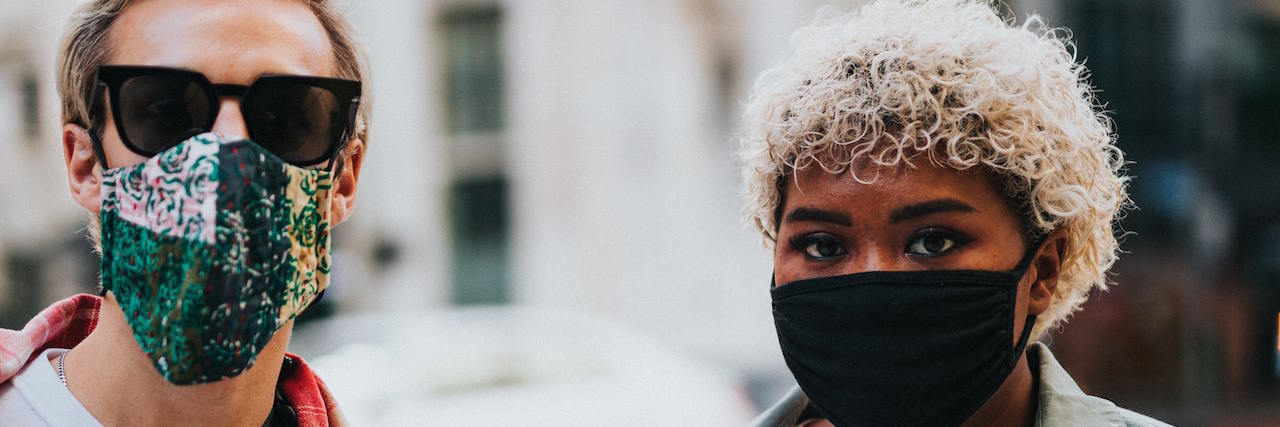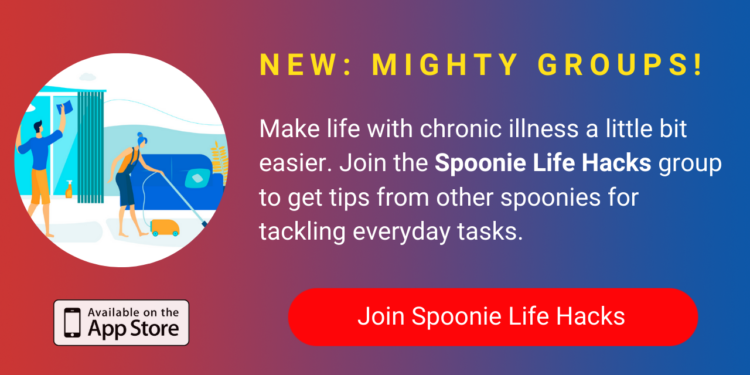5 Things We Hope the COVID-19 Pandemic Teaches Nondisabled People
COVID-19 has driven profound changes in the world. Virtual health and therapy models are reshaping how we deliver appointments and patient care. Technology has enabled people to stay connected during the pandemic. Some schools have more virtual class options, flexible attendance guidelines and most education programs have waived admission standardized test requirements. Curbside and delivery services for food, shopping malls and pharmacies are now more available than ever.
With the reconstructive and sudden bearing on society, drastic changes are being made in our day to day lives. Many of us are also feeling the impact of stay-at-home orders, separation and financial distress.
Yet, these accessibility barriers, structural disparities and physical and mental health struggles are part of the “regular” for some people. Before the pandemic, people with disabilities and chronic conditions navigated a world full of inaccessibility. Even more, many of us dealt with our symptoms, lacked access to care or lost jobs, education and opportunities.
We are often told that disability accommodations aren’t fair or possible, or we are called lazy when we cannot access employment. Accommodations that disabled people have been advocating for were suddenly created for nondisabled people during the pandemic, many of which were retracted when restrictions lifted. The consequences of isolation are often overlooked and underestimated. Many of our health conditions or limitations are treated as an “inconvenience” to other people.
While structural barriers and ableism (discrimination against disabled people) existed before it, the pandemic has magnified issues that disabled people live with every day. Although they may not live with it or fully understand, hopefully, some nondisabled people may now better realize what life can be like for people with disabilities or chronic conditions.
To share their thoughts on these issues, we turned to the disability and chronic condition community and selected some of the responses. We asked them to share what they hope nondisabled people take away from living through the COVID-19 pandemic that relates to their life with a disability or chronic condition. I encourage people to slowly read through and reflect on each response.
Note: Some responses have been lightly edited for length and clarity.
1. Staying at home or lacking access to work isn’t “easy” or “lazy.”
“I felt isolated before this. Staying home isn’t easy. I hope they remember how they wanted their hugs and contact. That’s all I wanted before this.” — @lifeistoshort
“[Remember] how it feels to be isolated and not able to go to the things you want to go to. Some people have felt this every day of living with their condition, not just during the pandemic, where we are all isolated to a degree.” — Annika
“Disabled people don’t sit at home out of choice. It is hard to live with a disability, to have no job and no income, [and] to spend most of your life at home with no social life or enjoyment. Also, now that more people are working at home, maybe employers would consider employing disabled people and letting them work from home, which has in the past been a barrier to gaining employment.” — Sara R.
“There is no way in hell that anyone would choose this way of life. It is not a ‘vacation’ to get to stay home from work, watch TV, order food in and be at home all the time. ” — Nancy M.
“I hope more people come to understand that staying at home all the time isn’t fun, and that I’d do anything to go out more and do more things!” — @lookforthejoy
“If you can’t work because of your health, like many disabled people can’t, our society offers no safety net. It’s a terrifying reality that needs to be addressed.” — Amy B.
2. Living with isolation, disability and chronic conditions can impact mental health.
“That anxious feeling people have worrying about what they’re gonna do if they catch COVID? Chronically ill people live with that anxiety EVERY DAY. We worried about it before COVID and we’ll worry about it after… I hope it makes people understand why chronically ill people are stressed the hell out.” — Brit
“[Have] respect for those of us who live like this every day (isolation, fear, boredom) with actual pain and/or illness on top of it. We are strong, not less than!” — Lizbeth
“Not being able to go out whenever you want can really negatively impact your mental state. Now imagine that it’s your own mind that keeps you from going out. Feeling trapped is a horrible feeling.” — @gimpykat
“[Remember] the struggles that occur with being ‘homebound.’ It’s not a piece of cake just ‘staying home.’ Also, [there is] the thought that lingers in the back of your head about living with compromised immune system and possibility of exposure to a germ that could potentially be life ending.” — Amber Y.
3. Chronic conditions and disabilities can be unpredictable and are part of our regular, daily lives.
“People with disabilities experience this kind of situation almost on a daily basis. Just getting the regular flu, let alone COVID, could be deadly for disabled people.” — Michael S.
“Life changes drastically when you have to rearrange it around health. Your priorities and decisions change because daily life has more risk.” — Sarah M.
“The future is so unknown, but still we can’t look at the future as able bodied, healthy people. I don’t and can’t plan trips due to unknown situations that can arise day to day. Canceling plans has been such a tremendous problem in the past and present. It’s more of a letdown to myself than anyone could imagine… It’s day by day, hour by hour, so many days. Able bodied people can’t and won’t ever get this.” — Nancy
“Respect people who have to deal with the unexpected every day.” — @sineadabc
“Anything can happen. One day, everything is possible, the next, there is nothing but limits. And it is all out of your control, no matter how much you negotiate! We all need to see others’ lives with acceptance, openness and compassion instead of judgment. Try to reach out and do what is best for the world around us.” — Regi L.
4. Flexibility, accessibility and disability accommodations should be part of the norm. It is a choice to not implement them.
“If you can rush to make accommodations for non-disabled people when they need them, you should be able to do the same for those of us who need them as our standard at all other times.” — Crystal R.
“If governments can implement how to navigate through a pandemic or face the hard consequences, they certainly can do their job and actually implement and enforce the American’s with Disabilities Act (which has been a law for three decades!). In the same way that these new implementations are expected and imperative, we disabled individuals also need the ADA to be out safe in society.” — Topher S.
“Virtual catch ups, virtual dates, virtual parties, virtual fitness classes, remote working and virtual meetings do work! And it’s a great shame it took a pandemic for these initiatives to become ‘norms.’ As someone with a chronic pain condition, I often have periods of time when I’m home/bed bound and completely cut off from friends and society. I hope nondisabled people remember these initiatives and make MORE effort to be inclusive of those who can’t be physically present. We want to participate. Let us.” — A.G. Bonsu
“Making accommodations are not that hard to do. You can change how things are done to make it more accessible. Think more about how you do things that could affect someone’s health or ability to participate. Be considerate of other health needs and just understanding in general.” — @spoonbat
5. Don’t take anything for granted.
“Good health is not guaranteed to anyone. It is a blessing to have and should not be taken for granted. When you don’t have it, it impacts every part of your life, not just physically, but emotionally and financially as well. And we should not be putting those who do not have good health at the bottom of society.” — Annie G.
“Life is precious. We don’t know what’s around the corner. Live each day like it is your last. Be grateful for the fact you can get up and go out whenever, as we don’t all have that luxury.” — Yasmin R
“Life is completely and utterly precious and ever changing, and the only way to get through it is community, compassion and love.” — Angie
These community responses should prompt critical thought about ableism and life with disabilities and chronic conditions. I hope nondisabled people remember that structural disparities are created and built into the system. Medical ableism is a known historical occurrence that remains today. Many disabled people have had near death experiences or chronic pain and cannot rest on the default assumption that our body will function a certain way, recovery easily or will not get sick. We need people to be open to the way disability and chronic conditions can impact our day-to-day lives and the needed flexibility, compassion and accessibility. We are human beings with innate worth and value.
Disability and chronic condition community, what else would you add? Tell us in the comments below!
Photo by Sharon McCutcheon on Unsplash


